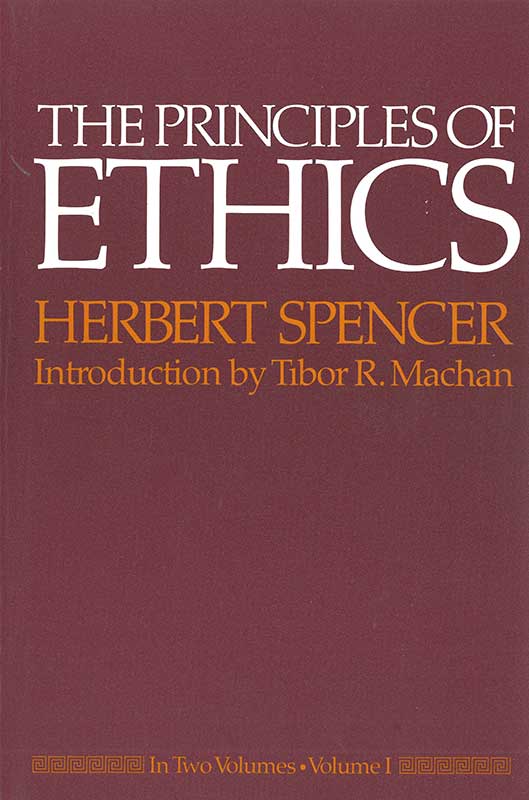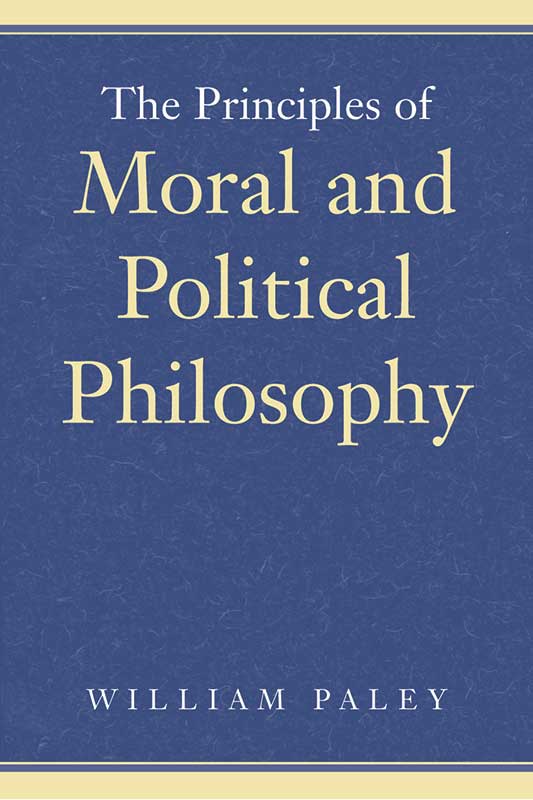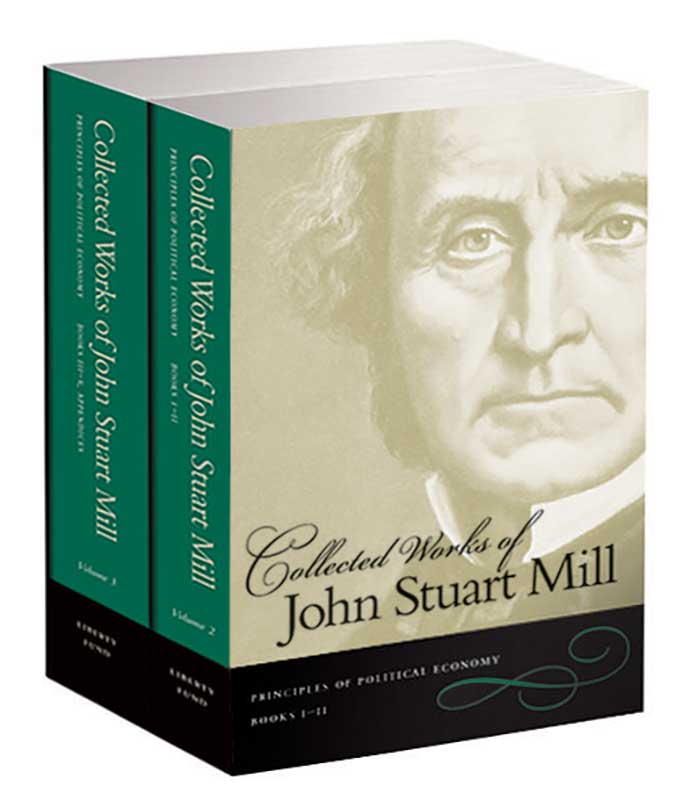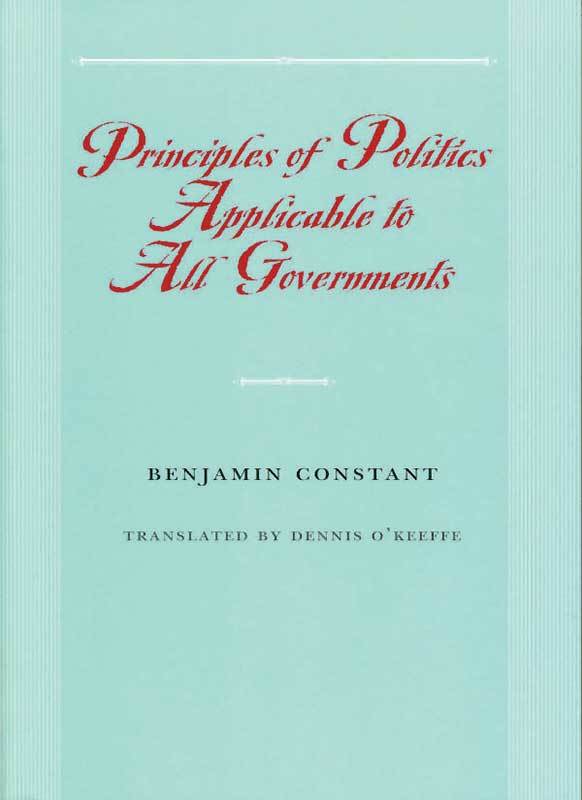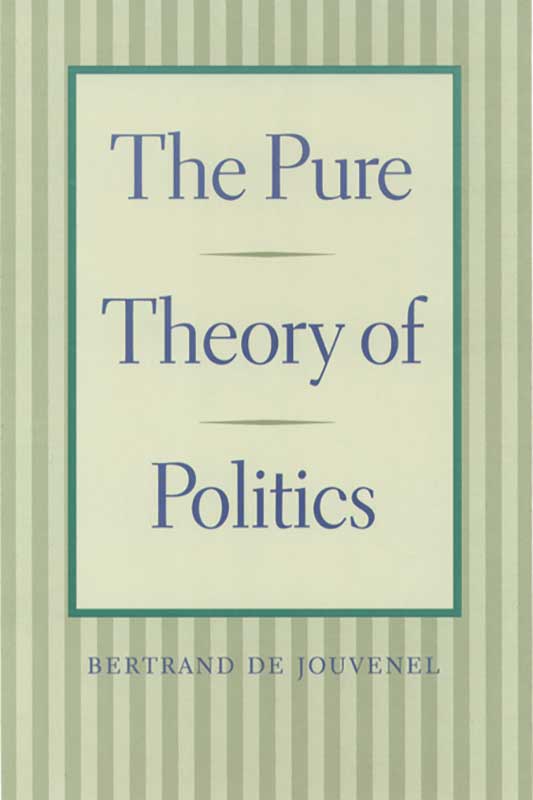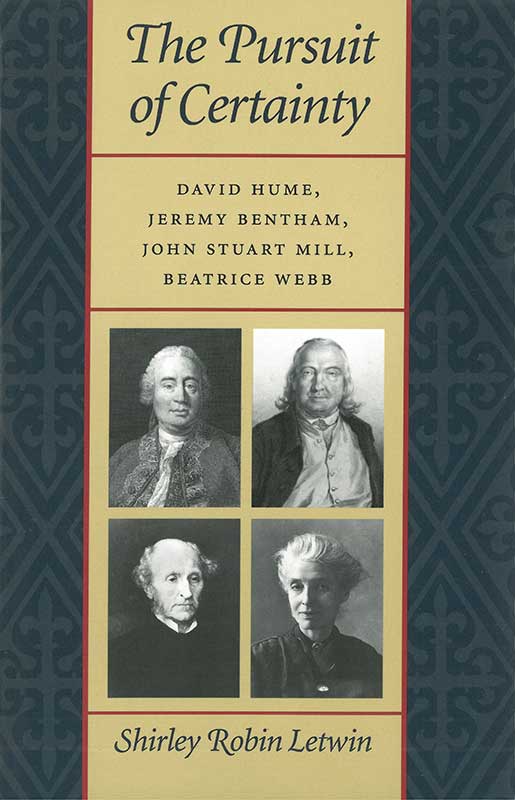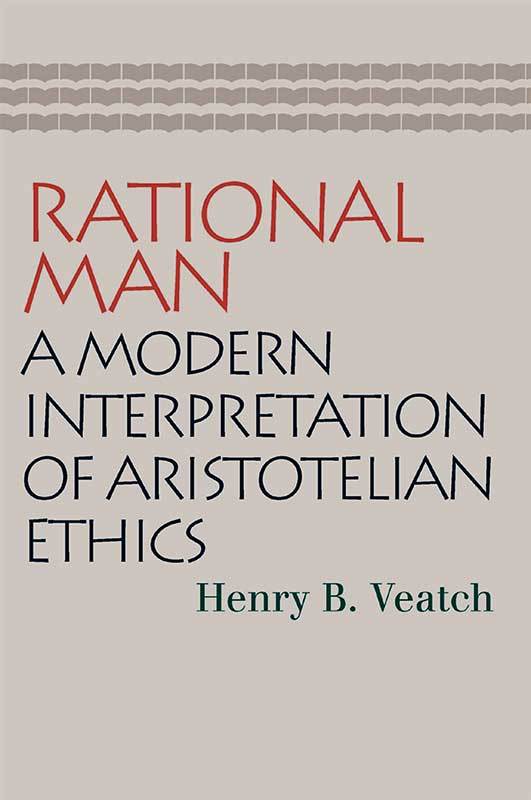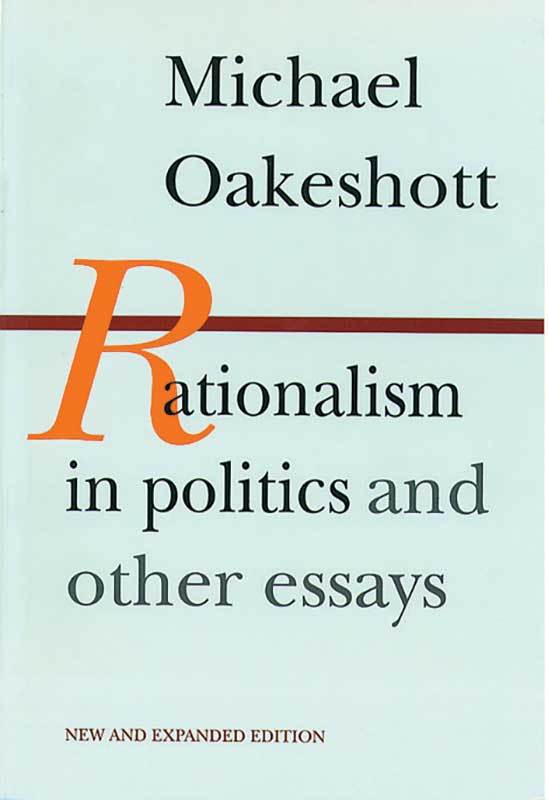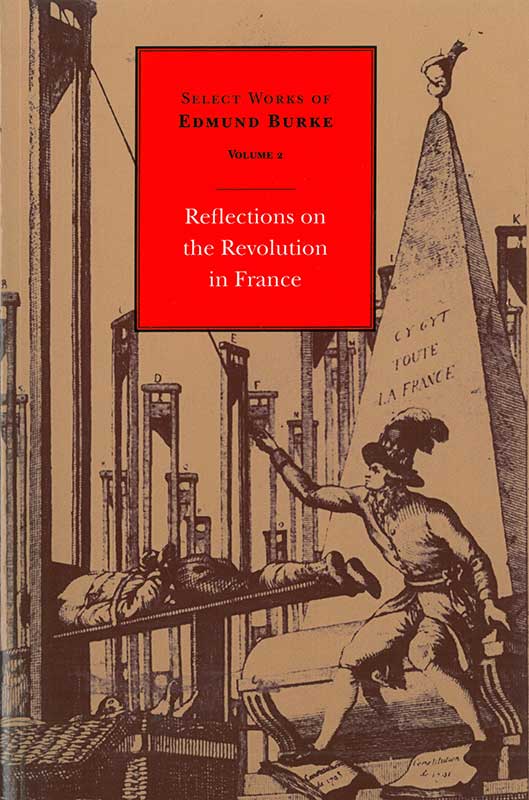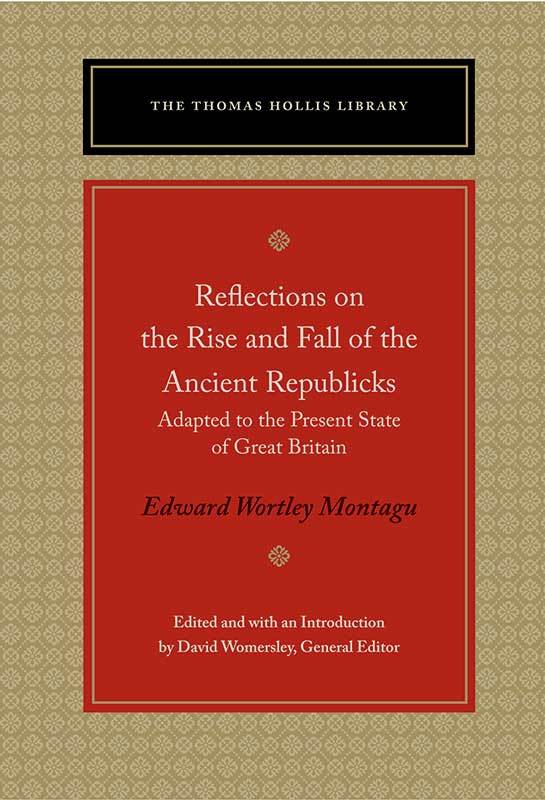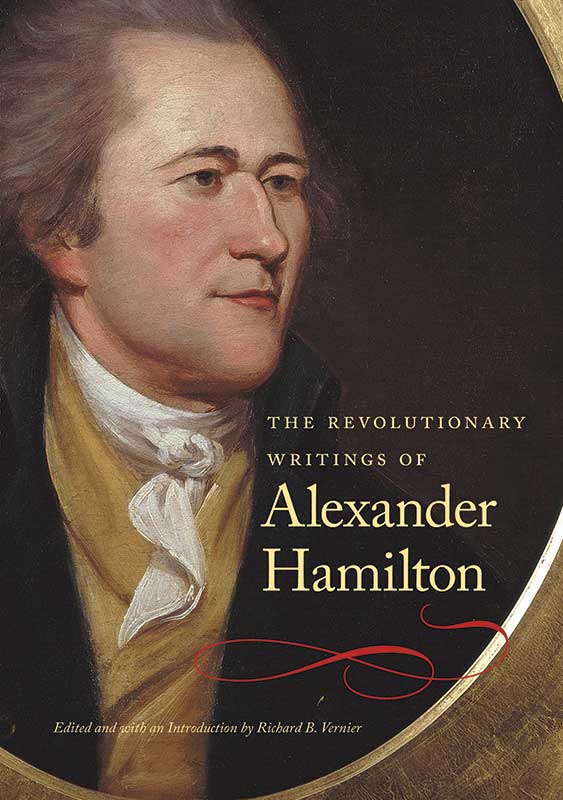Political Thought
Our titles in political thought encompass the ideals of the classical liberal tradition, such as self-government, the rule of law, and constitutional guarantees of freedom of religion and of the press. The collection includes foundational writings from such thinkers as John Locke, David Hume, Bernard Mandeville, and Alexis de Tocqueville, as well as twentieth-century perspectives from writers like Michael Oakeshott and Bertrand de Jouvenel. These titles represent thinkers from different times and contexts, offering the reader a variety of texts that have helped shape the ideas of liberty in today’s society.
Download Catalog-
The Principles of Ethics
by Herbert Spencer
/ Learn MoreThough almost forgotten today, Herbert Spencer ranks as one of the foremost individualist philosophers. His influence in the latter half of the nineteenth century was immense. Spencer’s name is usually linked with Darwin’s, for it was he who penned the phrase, “survival of the fittest.” Today in America he is most often admired for his trenchant essays in The Man…
-
The Principles of Moral and Political Philosophy
by William Paley
/ Learn MoreThis classic work by William Paley was one of the most popular books in England and America in the early nineteenth century. Its significance lies in the fact that it marks an important point at which eighteenth-century “whiggism” began to be transformed into nineteenth-century “liberalism.” First published in 1785, Paley’s Principles of Moral and Political Philosophy was originally based on…
-
Principles of Political Economy
by John Stuart Mill
/ Learn MoreLiberty Fund is pleased to make available in paperback eight of the original thirty-three cloth volumes of the Collected Works of John Stuart Mill that were first published by the University of Toronto Press that remain most relevant to liberty and responsibility in the twenty-first century. Born in London in 1806 and educated at the knee of his father, the…
-
Principles of Politics Applicable to All Governments
by Benjamin Constant
/ Learn MoreIn Principles of Politics, first published in 1815, Constant explores the subjects of law, sovereignty, and representation; power and accountability; government, property, and taxation; wealth and poverty; war, peace, and the maintenance of public order; and freedom, of the individual, of the press, and of religion. Benjamin Constant (1767–1830), born in Switzerland, became one of France’s leading writers, as well…
-
The Pure Theory of Politics
by Bertrand de Jouvenel
/ Learn MoreThis is the final volume in Jouvenel’s magnum opus, the trilogy that begins with On Power, moves to Sovereignty, and concludes with The Pure Theory of Politics. In this volume, Bertrand de Jouvenel proposes to remedy a serious deficiency in political science: “the lack of agreement on first principles, or ‘elements.’” The author’s concern is with political processes as they…
-
The Pursuit of Certainty
by Shirley Robin Letwin
/ Learn MoreBy examining the thought of four seminal thinkers, Shirley Robin Letwin in The Pursuit of Certainty provides a brilliant record of the gradual change in the English-speaking peoples’ understanding of “what sort of activity politics is.” As Letwin writes, “the distinctive political issue since the eighteenth century has been whether government should do more or less.” Nor, as many historians…
-
Rational Man
by Henry Babcock Veatch
/ Learn MoreForty years after its original publication, Liberty Fund brings back to print Henry Veatch’s path-breaking popular presentation of virtue ethics. This modern interpretation of Aristotelian ethics is a natural for undergraduate philosophy courses. It is also an engaging work for the expert and the beginner alike, offering a middle ground between existential and analytic ethics. Veatch argues for the existence…
-
Rationalism in Politics and Other Essays
by Michael Oakeshott
/ Learn MoreRationalism in Politics established the late Michael Oakeshott as the leading conservative political theorist in modern Britain. This expanded collection of essays astutely points out the limits of “reason” in rationalist politics and criticizes ideological schemes to reform society according to supposedly “scientific” or rationalistic principles that ignore the wealth and variety of human experience. Timothy Fuller is Professor of…
-
Select Works of Edmund Burke: Reflections on the Revolution in France
by Edmund Burke
/ Learn MoreOriginally published by Oxford University Press in the 1890s, the famed three-volume Payne edition of Select Works is universally revered by students of English history and political thought. Faithfully reproduced in each volume are E. J. Payne’s notes and introductory essays. Francis Canavan, one of the great Burke scholars of the twentieth century, has added forewords. Volume 2 consists of…
-
Reflections on the Rise and Fall of the Ancient Republicks
by Edward Wortley Montagu
/ Learn MoreIn 1759, at the height of the Seven Years’ War, when Great Britain was suffering a series of military reversals, Montagu considered his country’s plight in an historical context formed by the study of five ancient republics: Sparta, Athens, Thebes, Carthage, and Rome. Montagu’s focus on the ancient republics gives his contribution a distinctive twist to the chorus of voices…
-
The Revolutionary Writings of Alexander Hamilton
by Alexander Hamilton
/ Learn MoreAlexander Hamilton, trusted military aide and secretary to General George Washington, wrote to persuade. He had the ability to clarify the complex issues of his time without oversimplifying them. From the basic core values established in his earlier writings to the more assertive vision of government in his mature work, we see how Hamilton’s thought responded to the emerging nation…
-
The Revolutionary Writings of John Adams
by John Adams
/ Learn MoreThe Revolutionary Writings of John Adams presents the principal shorter writings in which Adams addresses the prospect of revolution and the form of government proper to the new United States. This collection illustrates that it was Adams who, before the Revolution, wrote some of the most important documents on the nature of the British Constitution and the meaning of rights,…
35% OFF YOUR ENTIRE BOOK PURCHASE
With promo code:
SUMMER2025
Expires July 31, 2025

